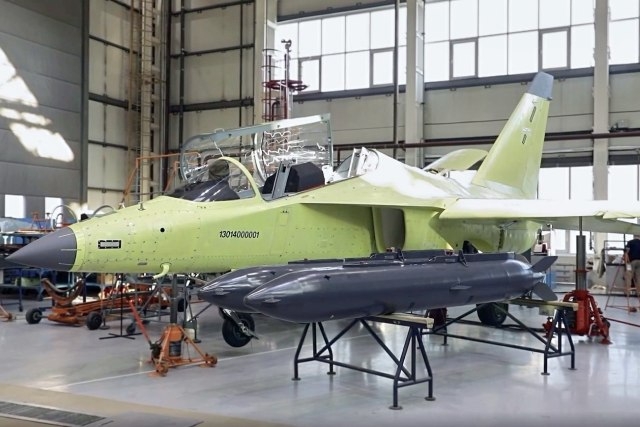Russia's Growing Influence in Africa: Arms Sales and Military Bases
Russia's expanding influence in Africa through arms sales, military deployments, and diplomacy is reshaping the continent's geopolitics, posing challenges to Western powers.
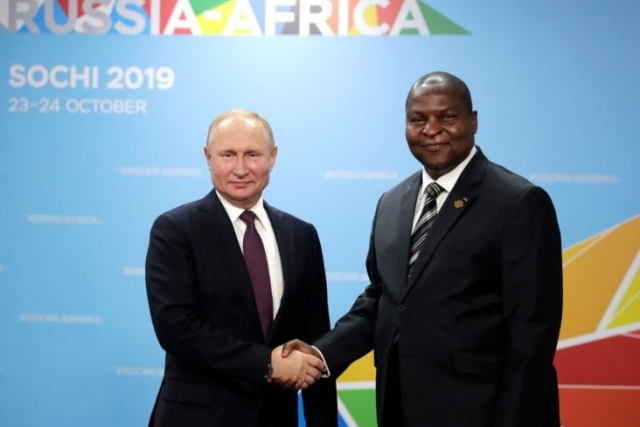
Russian President Vladimir Putin with his CAR counterpart Faustin-Archange Touadera at SOCHI-2019
Russia's expanding influence in Africa, demonstrated by arms sales, military deployments, and diplomatic engagements, reflects a significant geopolitical shift on the continent. This is mounting challenges for Western powers, impacting their influence and strategic interests.
According to the Institute for the Study of War (ISW), Russia is expanding its influence in Africa through the Africa Corps, controlled by the Russian Ministry of Defense, with operations likely to expand in Niger, Burkina Faso, Mali, and Central African Republic (CAR).
Despite initial setbacks in support following Russia's invasion of Ukraine in 2022, Moscow has managed to rebuild its image, particularly in regions like the Sahel, where approval ratings for Moscow have soared in countries such as Mali, Burkina Faso, and Chad.
The excellent showing of the Russian Army against Ukrainian forces largely equipped with highly regarded American, French and German military equipment in the Ukraine war has helped cement the already high regard for relatively inexpensive but rugged Russian equipment.
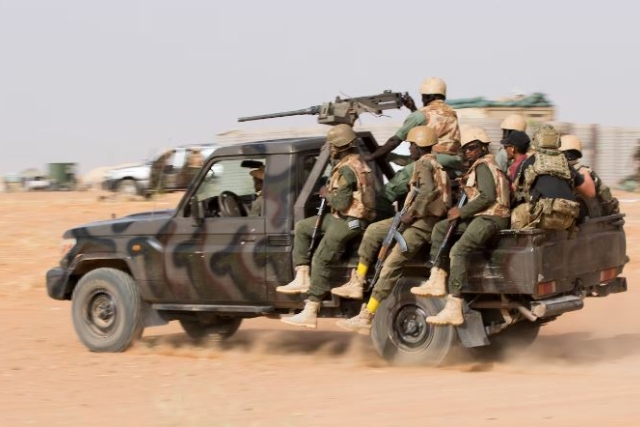
In addition, Russia’s growing influence in the poorest parts of Africa is partly due to the resentment against France and the United States who are seen as colonial powers out to exploit the natural resources of these nations.
Arms Sales and Military Deployments
African nations make up the low end of the arms market with many of them unable to afford Western arms, so turn to Russia and China. Typically, their requirement includes liberal financing in addition to a low price.
According to the latest 2024 SIPRI report, the main suppliers to Africa in 2019–23 were Russia, accounting for 24% of African imports of major arms, the USA (16%), China (13%) and France (10%).
SIPRI data spanning from 2015 to 2019 shows that Africa significantly relied on Russia for its military equipment. During this period, 49% of Africa’s military imports came from Russia, which is nearly twice the volume of arms purchased from its next two suppliers—the United States (14%) and China (13%). Some of Russian sales to the region during this period include: 12 Su-30 jets to Angola, helmet-mounted night vision goggles to an unnamed African nation, 12 Mi-35 helicopters to Nigeria, Pantsir S1 air defense system to Cameroon, and 2 Mi-171Sh helicopters to Burkina Faso.
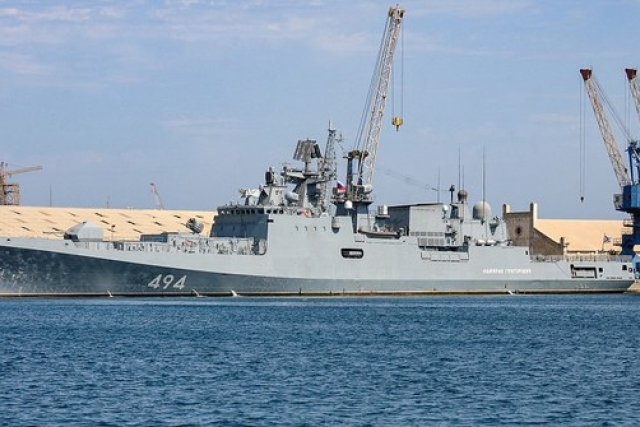
In May 2023, Russian and South African military representatives met in Moscow to discuss enhancing military cooperation and combat readiness. They held talks at the General Command, agreeing to strengthen cooperation between their land forces across multiple areas. The delegation also planned visits to military training institutions and defense industry enterprises.
Recent reports confirm arms deliveries to countries like Libya, with the arrival of a Project 775 landing ship in April 2024 carrying various military equipment, including rocket launchers, armored vehicles, and artillery pieces to bolster local forces aligned with Khalifa Haftar's Libyan National Army in Tobruk.
Additionally, in Niger, the deployment of Russian paramilitary forces is linked to the potential withdrawal of 1,100 U.S. military personnel on orders of the Niger Junta which seized power in a military coup earlier in 2024.
United States out, Russia in
The Niger military junta has called for ending the agreement governing American military presence, but a departure date for U.S. troops is unspecified. If U.S. forces leave, access to a crucial $110 million air base, vital for countering groups like ISIS, will be jeopardized, according the U.S DoD. The U.S. drone base in Niger is pivotal for intelligence gathering targeting terrorist strongholds. U.S. law prohibits funding to coup governments, including Niger, complicating diplomatic relations and security efforts in the region.
Around the same time the U.S. announced compliance with Niger's request to withdraw forces, reports surfaced of Chad's authorities instructing the U.S. defense attaché to cease activities at a base shared with French troops. If U.S. Special Forces detach from Chad, it would further diminish Western security presence in the Sahel, a region below the Sahara Desert marred by recent coups toppling fragile governments in Central and West Africa.
On May 3, Kremlin Spokesman Dmitry Peskov confirmed that Russia is actively pursuing defense cooperation with African countries, including Niger. This comes in response to reports of Russian troops being present at a Niger military base also hosting U.S. troops. Peskov emphasized that Russia is expanding relationships with African nations across various sectors, including the military, reflecting mutual interest. The Pentagon acknowledged the presence of Russian troops at the Niger base but downplayed concerns about Russian access to U.S. equipment in the region.
Russia pushing for establishing military based in Africa
Russia initially planned to construct a naval base in Sudan, a plan that has now been postponed indefinitely owing to the political crisis in the country. Discussions regarding the creation of the Russian Navy base in Sudan date back to 2017, with plans to establish military infrastructure in Port Sudan. The finalized agreement in 2019 involved Sudan providing territory for a 25-year lease, accommodating three hundred Russian military personnel, four ships, and an unlimited number of vessels on the raid. The facility aimed to serve as a logistics post for the Russian Navy, facilitating the deployment of large ships and nuclear submarines.
The Central African Republic (CAR) is also considering deploying a Russian military base in its eastern region to enhance border security. In early 2024, President Faustin-Archange Touadera expressed interest in establishing this base to address the challenges posed by various armed groups in the vast and remote eastern area. CAR has hosted foreign military bases before, including French and American ones that were later vacated or withdrawn. Plans for a potential Russian base in Berengo, west of Bangui, have been discussed, with infrastructure capable of accommodating up to 10,000 servicemen for training.
In November 2022, CAR aligned with Russia in a UN General Assembly vote on war reparations for Ukraine. In 2023, President Faustin-Archange Touadéra voiced support for Russian actions in Ukraine.
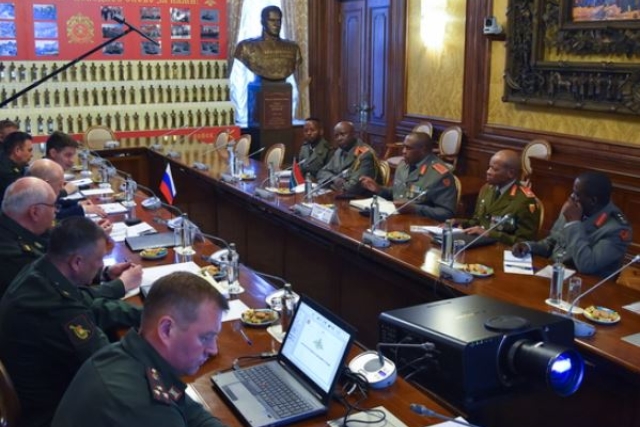
Back in December 2023, the Vector Research Institute in Russia partnered with an Egyptian electronics manufacturer to produce civilian anti-drone systems called "Zashchita" under license. This collaboration was formalized during the Egypt Defense Expo (EDEX 2023) in Cairo.
Russia's efforts to establish military footholds in Africa have broader geopolitical implications. For instance, the arrival of Russian military aircraft equipped with advanced anti-submarine capabilities in Libya aims to assert control over the Eastern Mediterranean and potentially restrict U.S. naval operations in the region.
Moreover, the hosting of the "Russia - Africa: What Next?" forum from April 24, 2024 at Moscow State Institute of International Relations (MGIMO University) signifies Russia's proactive engagement with African countries beyond military interests. Discussions around combating fake news, promoting academic tourism, and fostering youth projects demonstrate Moscow's multifaceted approach to deepening diplomatic ties and soft power in the region.
|
Country |
Year |
Military Deal with Russia |
|
Libya |
April 2024 |
Delivery of rocket launchers, armored vehicles, and artillery pieces |
|
Niger |
2024 |
Deployment of Russian paramilitary forces |
|
Sudan |
Postponed indefinitely |
Establishment of naval base |
|
Central African Republic |
2023 |
CAR President expressed interest in setting up Russian base |


